This comprehensive guide breaks down your options so you can buy a classic car with confidence. Sherpa Auto Transport is here to help, too. We understand that once you find your dream vintage ride—be it an elegant muscle car or a pre-war treasure—you need reliable transportation solutions.
Whether you snag your vehicle from an in-person auction or through a classic car trader online platform, having a shipping partner who knows the ins and outs of handling classic cars is crucial. After all, your newly acquired gem deserves to arrive in perfect condition.
Key Takeaways
- Classic Cars Defined: A “classic” is usually 20-25 years old, historically significant, and beloved by automotive enthusiasts.
- Purchase Venues: You can choose from in-person auctions, specialized websites like Hemmings or Classiccars.com, or local dealerships that specialize in buying classic cars.
- Evaluating Dealers: Look for authenticity, transparent service records, and a strong reputation—these are especially vital when deciding the best place to buy classic cars.
- Shipping Solutions: After purchase, ensure a smooth move with a trusted service like Sherpa Auto Transport, particularly if you’re dealing with a rare model.
- Maintenance & Care: Many older vehicles need special upkeep, so factor that into your budgeting and insurance plans.
In This Guide:
- What Makes a Car a Classic Car?
- Classic Car Examples
- Where to Buy a Classic Car
- What to Look for in a Classic Car Dealer
- Trust Sherpa Auto Transport With Your Classic Cars
- Classic Car FAQs
What Makes a Car a Classic Car?
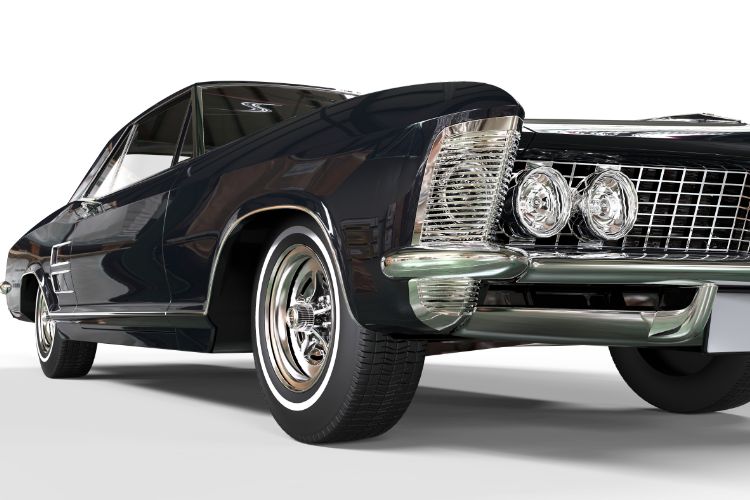
Classifying a vehicle as “classic” can be somewhat subjective, but most enthusiasts, collectors, and even some state DMVs share common guidelines.
Generally, a car is deemed a “classic” if it:
- Meets a Minimum Age Threshold: Typically 20–25 years old or older. Some insurance companies and state laws even distinguish between “classic,” “antique,” and “vintage” based on more stringent age requirements.
- Holds Cultural or Historical Significance: Maybe it introduced an innovative design feature, represents a breakthrough in engineering, or achieved mainstream popularity that influenced an entire era of automotive styling.
- Enjoys Ongoing Enthusiast Demand: Check out forums, classic car trader online groups, and dedicated clubs—if a certain model has an avid, long-term following, it’s often considered “classic.”
In short, a car’s age, rarity, and iconic status usually define buying classic cars. While personal opinions vary, these attributes remain consistent markers across the hobby. Some states or insurance companies go a step further by offering official labels—like “historic vehicle” or “vintage auto”—which can affect registration and coverage.
These designations typically impose mileage or usage restrictions to preserve older automobiles for special events and weekend outings.
Why the Labels Matter
- Insurance Policies: Many insurance providers have special coverage tiers for “classic cars,” often with agreed-upon valuations and limited annual mileage.
- DMV Regulations: Some states require unique license plates or have different inspection rules for antiques or vintage vehicles.
- Resale & Collectibility: A recognized “classic” car generally has a more robust resale value thanks to its documented status and enthusiast interest.
Classic Car Examples
When you picture a “classic car,” your mind might wander to 50s cruisers, muscle cars, or European roadsters. The truth is, “classic” can include a broad spectrum of historical periods:
Ford Mustang (1960s–1970s)
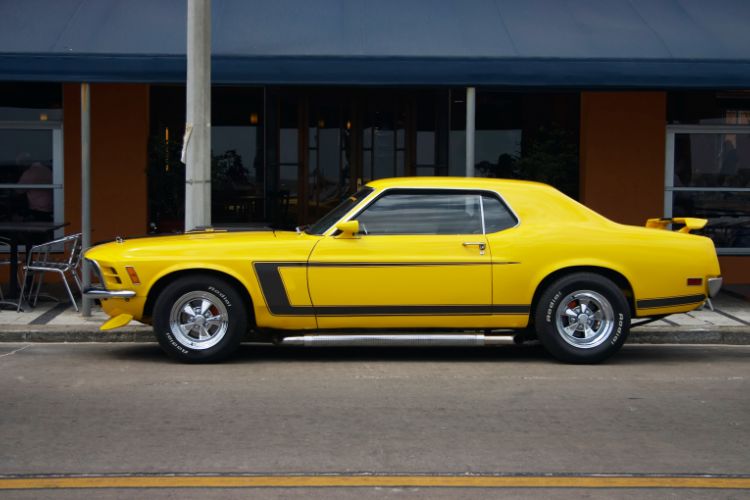
Early Mustangs kicked off the “pony car” movement and are beloved for their sleek profiles and powerful V8 engines. Enthusiasts worldwide celebrate them for redefining affordable performance cars.
Chevrolet Bel Air (1950s)
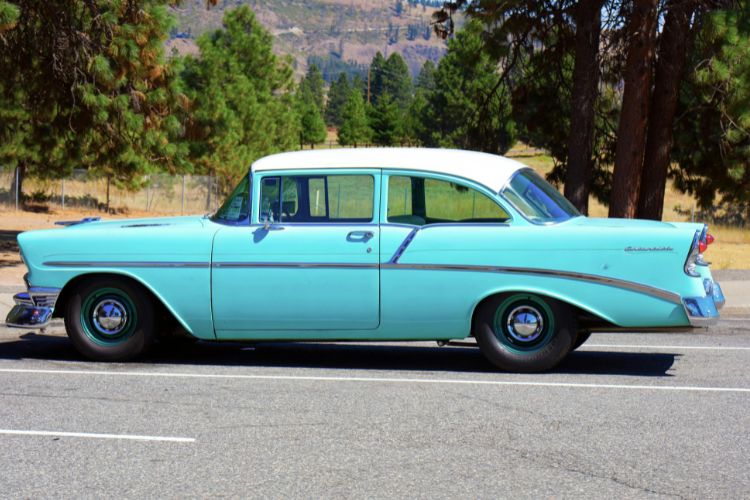
Arguably the quintessential ‘50s icon, Bel Air’s famous tailfins, pastel paints, and chrome grilles embody a golden era of American automotive design. It is perfect for those who crave rock-and-roll-era nostalgia.
Volkswagen Beetle (pre-1980s)
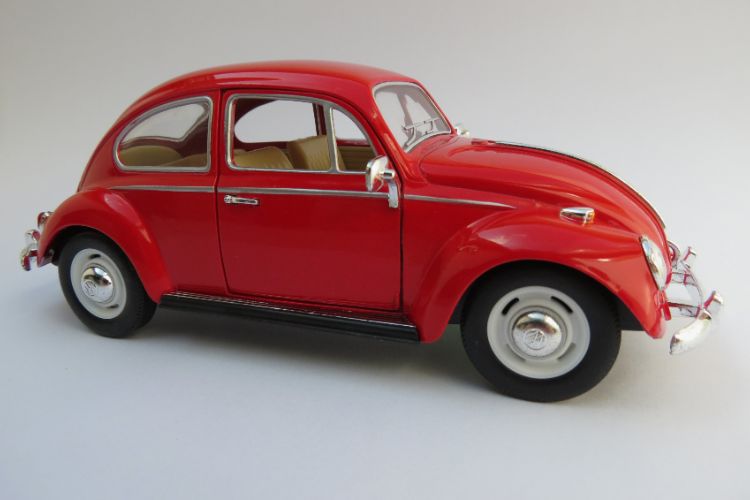
The world’s “people’s car,” the Beetle soared in popularity due to its affordability, distinctive silhouette, and mechanical simplicity. Spotted at countless classic car meets, it remains a global icon.
Mercedes-Benz SL “Pagoda” (1960s)
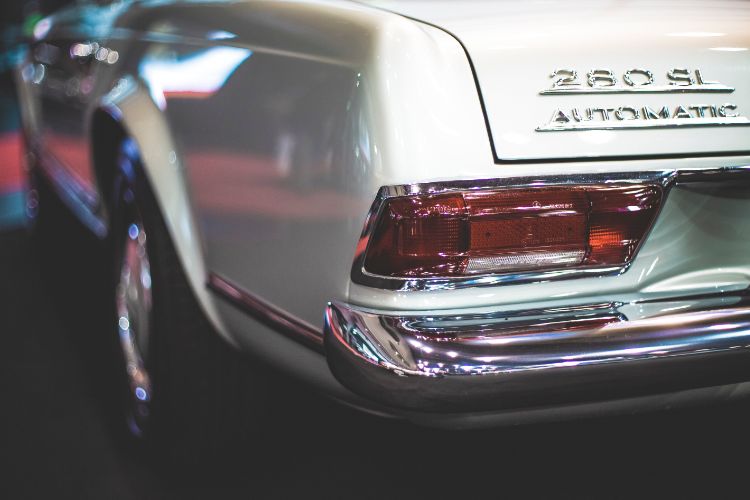
A hallmark of luxury, the Pagoda-era SL features cutting-edge safety innovations for its time and unmistakable European styling. Collectors often praise its balance of classic elegance and reliable engineering.
If you are looking for more inspiration on how to find the best vintage rides, swing by Sherpa’s Best Car Shows to see how diverse the classic car landscape truly is—where muscle machines rub shoulders with vintage trucks and where pre-war sedans share the stage with quirky European imports. Each show offers a glimpse into why these cars remain so captivating for collectors, historians, and enthusiasts alike.
Where to Buy a Classic Car
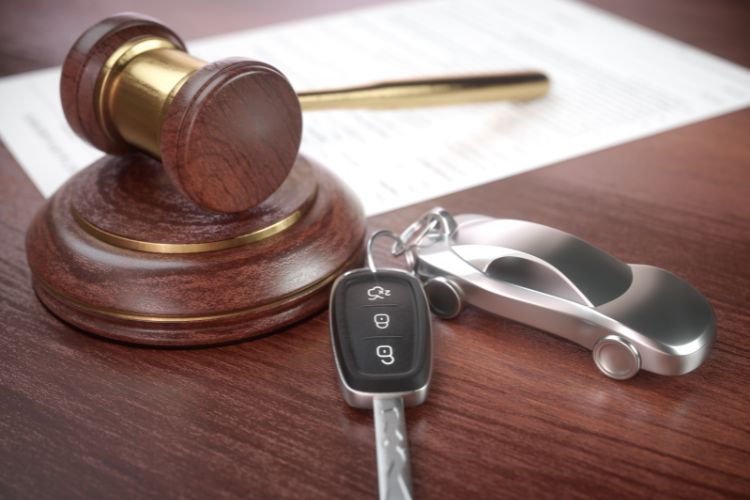
So, you’re interested in discovering where to buy classic cars. Options range from on-site auctions to classic car trader online marketplaces. Let’s explore them in detail.
In-Person Auctions
If you love the thrill of a live event, buying classic cars at an auction could be exhilarating.
Some well-known auction houses specialize in vintage and collector vehicles, offering:
- Exclusive Access: Rare models often show up here first.
- Expert Assessments: Many auction houses provide documentation, mechanical evaluations, and sometimes even a historical background of the car.
However, be prepared for bidding wars, a lively atmosphere, and occasional hidden fees. To learn more, read our guide on Buying a Car From an Auction—it breaks down the process step by step, from registration to final payment.
Classic Car Websites

For car enthusiasts who prefer a quieter, more convenient approach, online platforms are a go-to for buying classic cars. These classic car trader online hubs not only provide global reach but also let you filter listings by model, make, year, or even price—making it a breeze to compare options before deciding on the best place to buy classic cars.
Whether you live a few miles away or across the country, browsing these sites can connect you to dream vehicles in seconds. Below are three notable platforms to explore:
Hemmings
Hemmings is legendary in the automotive world— a household name for classic car enthusiasts. It doesn’t just offer listings; it also features editorial content, auctions, and community resources.
Their online portal showcases everything from pre-war antiques to modern collectibles, with detailed listings that often include service history, restoration notes, and high-quality photos.
- Key Feature: Comprehensive editorial articles and an auction section that regularly features rare gems.
- Additional Tip: For a deeper look at how Hemmings operates, plus pros and cons, check out our Hemmings Review. It’s a handy reference before making your first or next purchase.
Classics.Autotrader.com

Born from the well-known AutoTrader brand, Classics.Autotrader.com focuses exclusively on classic vehicles—including muscle cars, hot rods, vintage trucks, and more. You can find both project cars ready for restoration and pristine, show-ready beauties.
- Key Feature: Intuitive filters for body style, drivetrain, and price range. This helps narrow down choices quickly if you’re set on a specific type of classic car.
- Additional Tip: Sellers range from private owners to professional dealerships. Always read reviews and request detailed photos or service records to ensure transparency.
Classiccars.com

Classiccars.com caters to a broad range of tastes and budgets with thousands of listings. Its advanced search feature lets you zero in on specific criteria—like body type, mileage, or even interior color—making it easier to discover hidden gems.
- Key Feature: A straightforward, user-friendly interface and a robust seller community that actively responds to questions.
- Additional Tip: Many aficionados tout it as one of the best places to buy classic cars online because of how easy it is to browse and connect with reputable sellers. Still, be sure to do your homework—request additional photos or arrange third-party inspections for high-value vehicles.
Making the Most of Online Shopping
- Read Seller Feedback: Many platforms allow buyers to leave reviews. Look for sellers with consistently positive ratings.
- Check Service Records: Don’t hesitate to ask for maintenance logs, restoration documents, and receipts for new parts.
- Plan for Transport: Once you land your dream car, you’ll need a reliable way to ship it home. Sherpa Auto Transport specializes in Classic Car Transport to ensure vintage rides remain pristine on their journey.
- Negotiate Diplomatically: Prices on these sites can be flexible. Politely discuss any concerns—like rust, engine repairs, or upholstery damage—so you don’t overpay.
Online platforms have truly reshaped the landscape of buying classic cars. Using these user-friendly websites—Hemmings, Classics.Autotrader.com, or Classiccars.com—you can explore countless listings, compare specs, and even connect with fellow collectors around the globe.
Take your time, verify each car’s authenticity, and always keep shipping arrangements in mind for a worry-free purchase.
To explore more digital tools for buying classic cars, see our piece on Car Auction Sites or How to Buy a Car Online. These resources can help you compare platforms, spot scams, and seal the deal securely.
What to Look for in a Classic Car Dealer
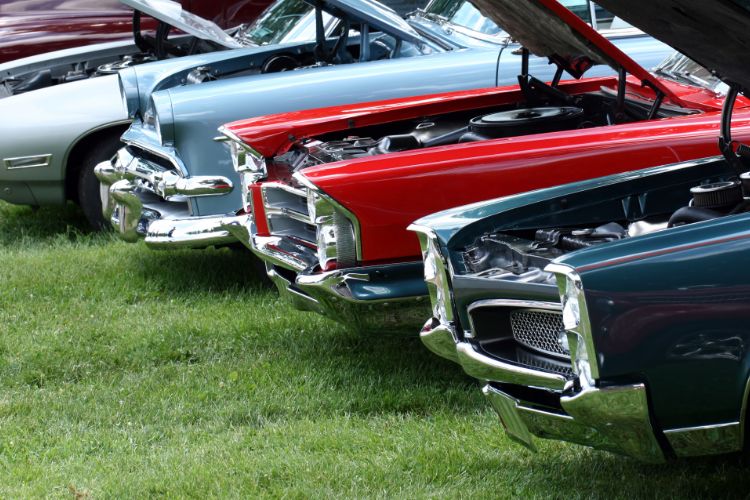
Not all dealerships are created equal, especially when dealing with prized vintage automobiles.
If you prefer an in-person approach, consider these factors:
- Proven Track Record: A dealership’s reputation in the classic community speaks volumes. Browse online forums, check reviews, and ask for references.
- Transparent Vehicle History: Ensure the dealer can produce service records, restoration documentation, and any relevant historical data on the car.
- Expertise: Are the staff knowledgeable about the make and model? This matters for “matching numbers” or verifying authenticity.
- Clean Facilities: Classic cars require special care—look around for how they’re stored and maintained.
- Competitive Pricing: Compare similar models online, or use price guides, to confirm if the dealer’s numbers match market values.
Trust Sherpa Auto Transport With Your Classic Cars
Where to buy classic cars ultimately depends on your personal preference, comfort level, and budget. Whether your heart is set on the buzz of an in-person auction, the convenience of a classic car trader online, or the local charm of a specialized dealership, you’ll find endless ways to discover your perfect piece of automotive history.
Once you buy a classic car, don’t let logistics become a stumbling block. Sherpa Auto Transport is here to provide seamless shipping, safeguarding your vintage pride and joy from pickup to delivery.
For a deeper look at everything from Car Shows to Car Auction Sites and Classic Car Transport, explore our comprehensive guides. With the right planning, research, and reliable transport partner, you can make your journey into the world of classic automobiles as smooth and exciting as the cars themselves.
Classic Car FAQs
How can I ship a car to where I am?
Once you decide on your dream ride—be it from an auction in another state or a classic car trader online—you’ll need reliable transportation. Sherpa Auto Transport specializes in classic car transport solutions designed to protect these unique vehicles.
Our enclosed transport options help shield your investment from road debris and weather, ensuring it arrives in pristine condition.
Do classic cars appreciate?
In many cases, yes—certain models appreciate over time, especially if they’re rare or in high demand among collectors. However, appreciation is never guaranteed. Buying classic cars can be a rewarding passion, but it shouldn’t be your only investment strategy.
Maintenance, storage, and insurance costs can offset potential gains.
Do dealerships work on classic cars?
Some specialized dealerships have on-site mechanics well-versed in vintage engines, carburettors, and bodywork. However, your average modern dealership might lack those classic skills. Verify a dealer’s or workshop’s qualifications before entrusting them with a delicate restoration or major repairs.
Do classic cars need special insurance?
Yes—many owners opt for classic car insurance, which typically offers agreed-value coverage and mileage limitations. This protects you in case of theft or damages, acknowledging the collectable nature of the automobile. Always review policy details to ensure you have the right blend of coverage and cost.

